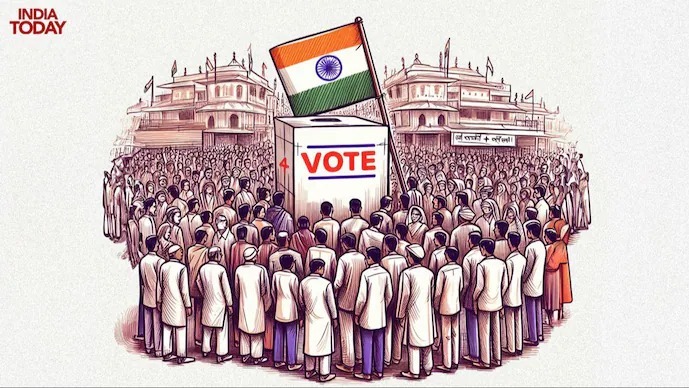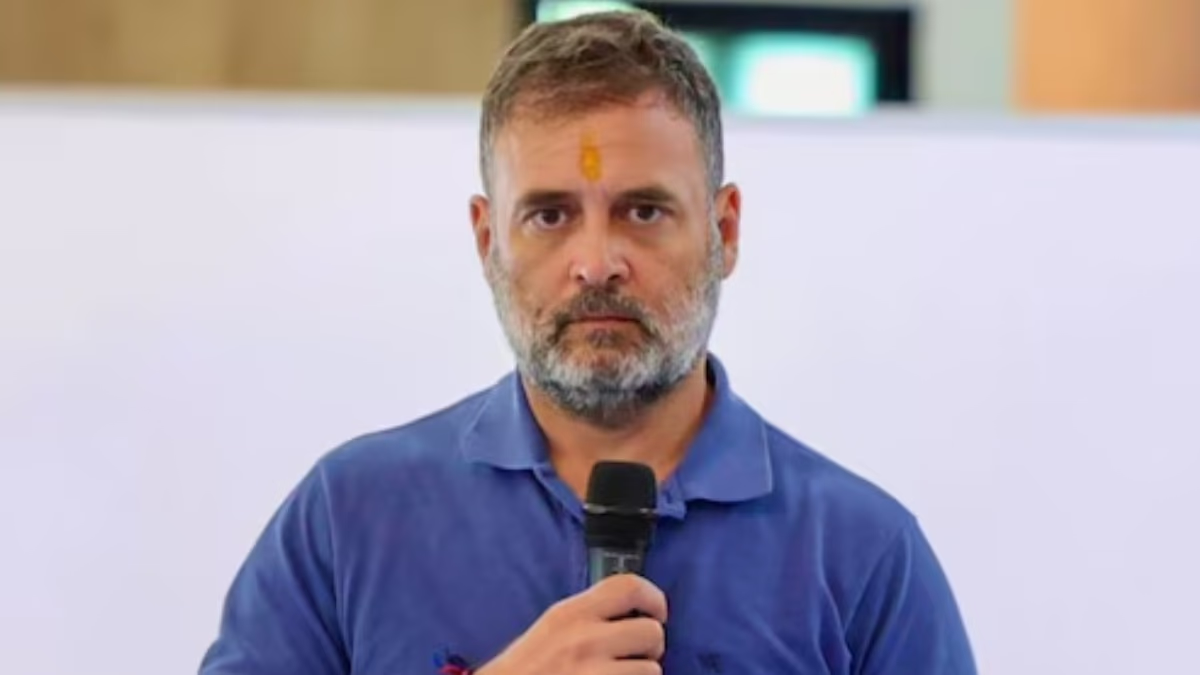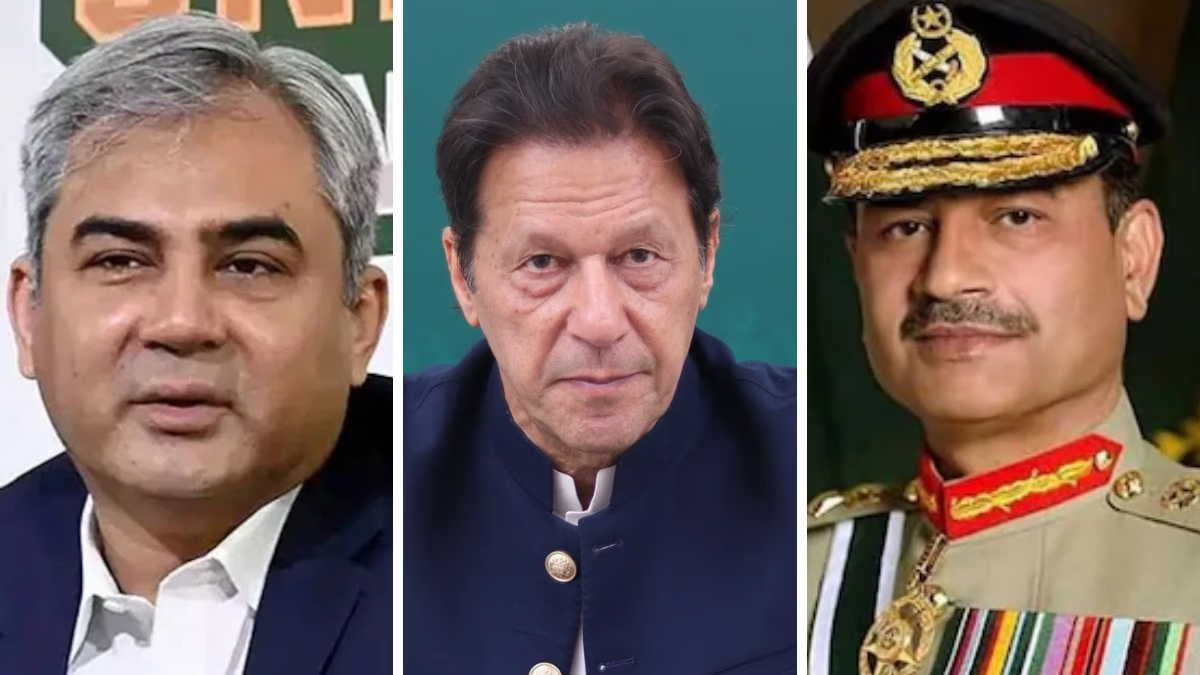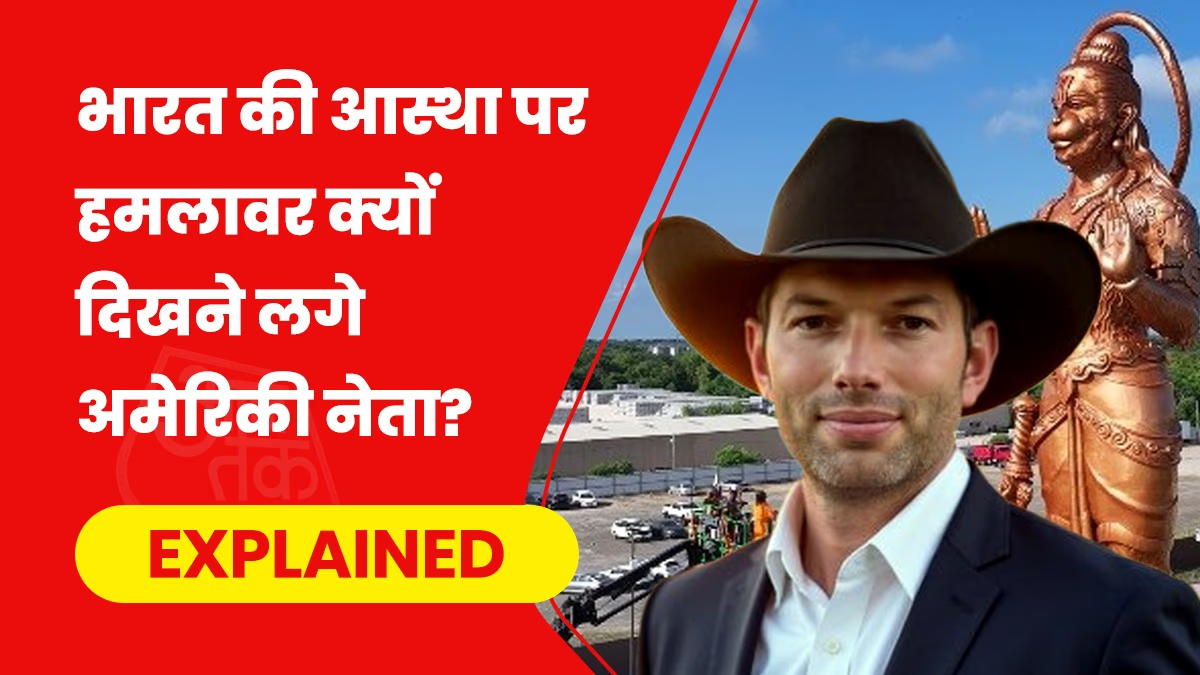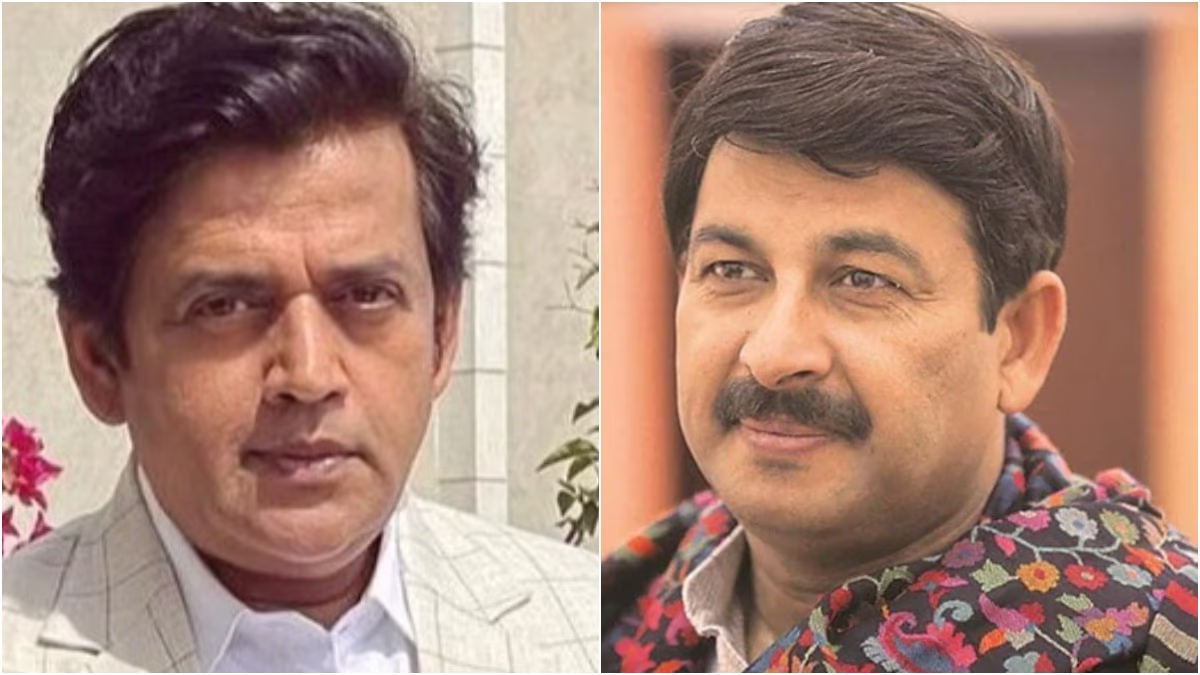Model Code of Conduct Explained:
The Election Commission is set to announce the much-anticipated dates for the upcoming Lok Sabha Election 2024 today, unleashing the Model Code of Conduct across India until the completion of the election process. Tailored to ensure free and fair elections, this code introduces major changes in the governance procedures once it comes into effect.
What changes come with the implementation of the Code of Conduct?
1. Ban on Government Announcements
Following the election announcement, ministers and officials are prohibited from declaring or promising financial grants.
Aside from civil servants, the government is forbidden from laying foundation stones or initiating any new projects or schemes.
Promises related to the construction of roads and provision of drinking water facilities among others are also not permitted during this period.
2. Government can't transfer officials
Central government employees function as Election Commission staffers throughout the election process.
The government is not allowed to transfer or post any government official during the enforcement of the Code. If a transfer or posting is imperative, permission must be sought from the Commission.
3. Government funds cannot be utilized
The use of government funds for advertising or public relations is banned during the Code. Any ongoing advertisements must be removed.
No new schemes, construction works, inaugurations, or foundation layings are permitted. Ongoing projects that started earlier may continue.
In case of natural disasters or pandemics, the government must obtain permission from the Election Commission before taking any measures.
The use of government transportation, including aircraft, vehicles, machinery, and personnel for the advancement of the ruling party's interests, is prohibited.
Public spaces, such as grounds for electoral meetings and helipads for flights, should be equally accessible to all parties and candidates under the same terms and conditions.
4. Campaign-related rules and restrictions
Religious places such as temples, mosques, churches, and gurudwaras cannot be utilized for election campaigning.
Political parties can use any number of vehicles (including two-wheelers) for campaigns but must obtain permission from the returning officer first.
Parties or candidates need police permission before holding a rally, procession, or election meeting.
The use of DJs is not allowed between 10 PM and 6 AM. Rallies, if any, must not take place before 6 AM or after 10 PM.
The Election Commission stipulates that the ruling party or its candidates should not monopolize government rest houses, post bungalows, and other government accommodations. Their use as election campaign offices, or for hosting public meetings, is banned.
5. Guidelines regarding rhetoric
Parties and candidates should refrain from activities that could exacerbate existing differences, incite mutual enmity, or create tension among people based on caste, community, religion, or language.
Criticism of rival parties should be confined to their policies, programs, past record, and work. Personal aspects of public figures that are unrelated to their public activities must be avoided.
Unverified allegations should not be the basis for criticism of other parties or their workers.
6. Important rules on election day
Cooperate with officers on election duty to ensure peaceful, orderly voting and allow voters complete freedom to exercise their rights without interruption or obstruction.
A ban on serving or distributing alcohol during the 24 hours before election day and on the day itself.
Gatherings of non-essential crowds at political party camps near polling centers are prohibited.
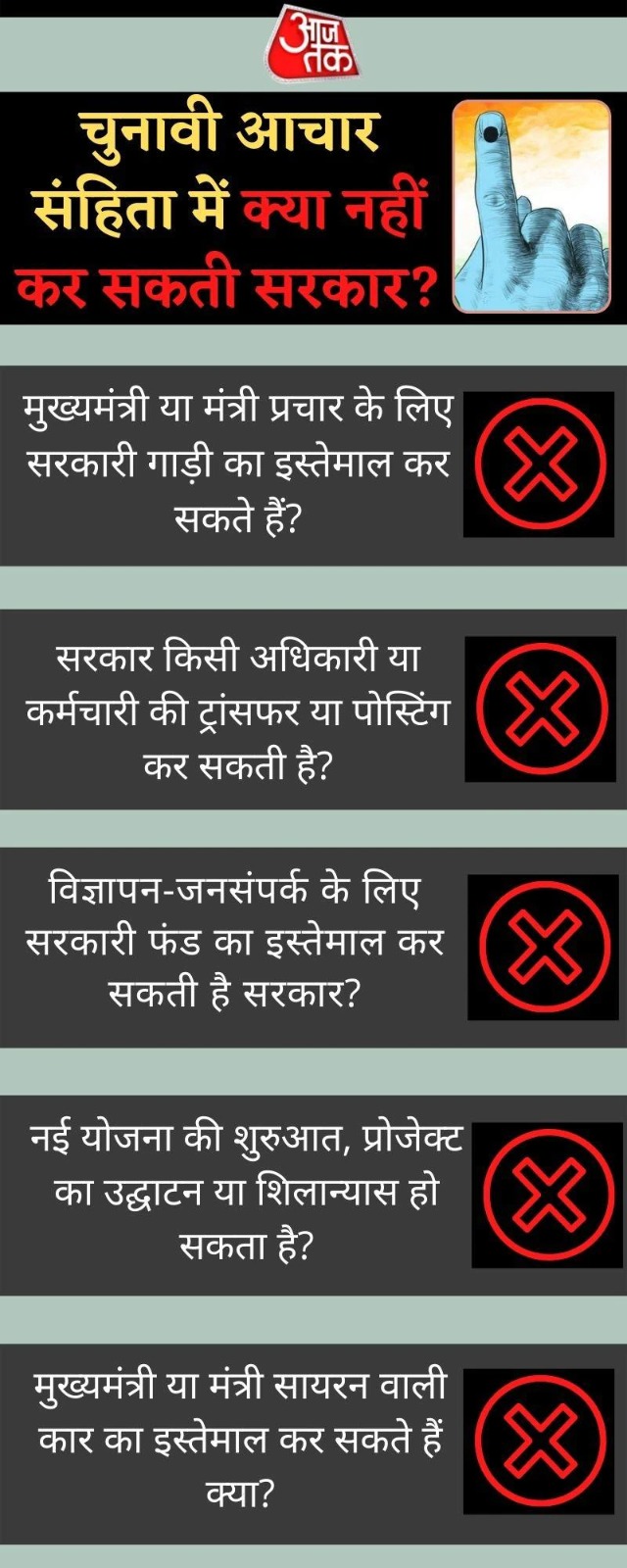
Source: aajtak
7. Election Commission turns 'mighty'
With the enactment of the Code of Conduct, ministers, chief ministers, legislators face significant restrictions. Any government actions require Commission approval.
Central or state ministers cannot summon any officer involved in election proceedings.
8. Consequences of violating the Code of Conduct
If a candidate breaches the Code, campaign bans may apply.
Violations may invoke the Indian Penal Code of 1860, the Criminal Procedure Code of 1973, and the Representation of the People Act of 1951.
Violating candidates may face criminal prosecution and potentially imprisonment.
The Election Commission also has the authority to suspend or withdraw a party's recognition under paragraph 16A of the Election Symbols (Reservation and Allocation) Order of 1968.
When was the Code of Conduct first introduced?
The Model Code of Conduct was initially enacted during the 1960 Kerala Assembly elections. The Election Commission of India released it as the 'Minimum Code of Conduct' on September 26, 1968, during the mid-term elections from 1968-69. It has been revised in 1979, 1982, 1991, and most recently in 2013.
